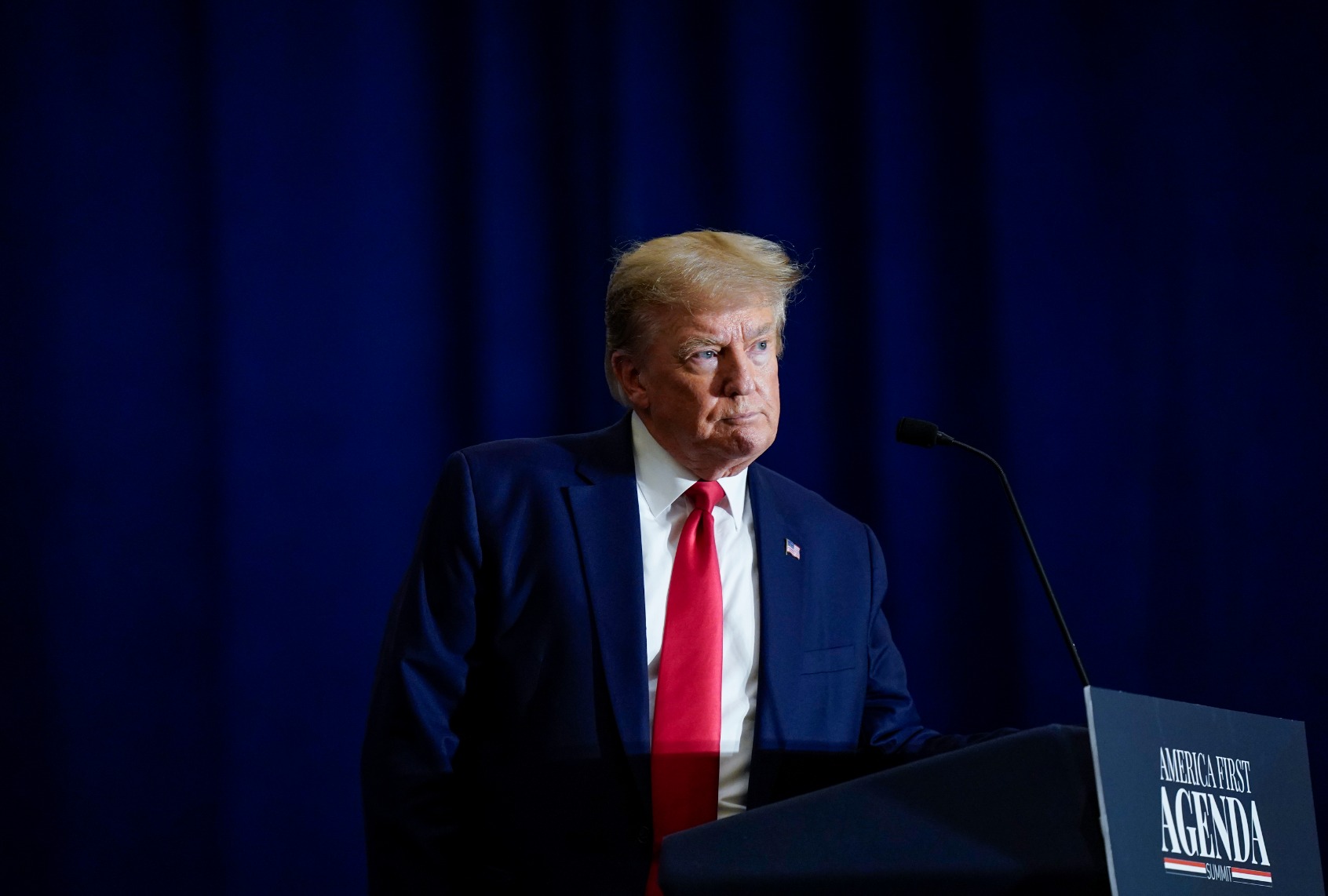A U.S. judge on Thursday gave the federal government a week to propose redactions to the warrant affidavit detailing the information that led to last week’s search of Mar-a-Lago, former President Donald Trump’s Florida home.
“I’m not prepared to find that the affidavit should be fully sealed,” said U.S. Magistrate Judge Bruce Reinhart, according to The Wall Street Journal. After reviewing the document several times, he concluded that “there are portions of this affidavit that can be unsealed.”
“This is going to be a considered, careful process, where everybody’s rights, the government’s and the media’s, will be protected,” he added amid calls from the Journal and other outlets—including CNN, The Associated Press, The New York Times, and The Washington Post—to release the affidavit.
The AP reported:
In addition to ordering the redactions, the judge agreed to make public other documents, including the warrant’s cover sheet, the Justice Department’s motion to seal the documents, and the judge’s order requiring them to be sealed.
Those documents showed the FBI was specifically investigating the “willful retention of national defense information,” the concealment or removal of government records, and obstruction of a federal investigation.
Within days of the August 8 raid of Mar-a-Lago, the search warrant and an inventory of what agents seized were made public. Those documents revealed that Trump is being investigated for potential violations of the Espionage Act, obstruction of justice, and unlawful removal of government records, and that materials labeled “top secret” were removed from the property.
Trump—who had first publicly announced the FBI search of Mar-a-Lago—declined to oppose the release of those documents, which his legal team also had, meaning he could have chosen to make them public himself.
In a late Monday post on his Truth Social network, Trump said that “in the interest of transparency, I call for the immediate release of the completely unredacted affidavit pertaining to this horrible and shocking break-in. Also, the judge on this case should recuse!”
Charles Tobin, an attorney representing multiple media outlets, also highlighted the need for transparency in court on Thursday.
“Transparency serves the public interest in understanding and accepting the results. That’s good for the government and for the court,” he said. “You can’t trust what you cannot see.”
As the Times explained last week:
Affidavits for warrants are typically sworn to by federal agents and are used to persuade judges that it is worth invading someone’s privacy to collect proof of violations of the law. The affidavit supporting the search warrant for Mr. Trump’s home and members-only club presumably contains things like the specific laws that the government believes were broken and a brief narrative of the inquiry into Mr. Trump’s storage of classified documents at Mar-a-Lago.
It also likely includes a recitation of other methods—like grand jury subpoenas—that the government sought to use to retrieve the documents in an effort to persuade the judge that the search warrant was necessary.
Carol Jean LoCiero, a lawyer representing the Times and others, had written of releasing the affidavit that “the matter is one of utmost public interest, involving the actions of current and former government officials.”
“President Trump decried the search as an ‘assault that could only take place in Third World countries,’ asserted agents ‘even broke into my safe,’ and otherwise challenged the validity of the search,” the lawyer noted.
The U.S. Department of Justice (DOJ), meanwhile, had argued that unsealing the affidavit, which contains “highly sensitive information about witnesses,” would “cause significant and irreparable damage to this ongoing criminal investigation.”
“If disclosed, the affidavit would serve as a roadmap to the government’s ongoing investigation,” the DOJ said, “providing specific details about its direction and likely course, in a manner that is highly likely to compromise future investigative steps.”
According to the Times, “The Justice Department did not immediately respond to Judge Reinhart’s ruling, but privately, officials said they were shocked by the decision.”

